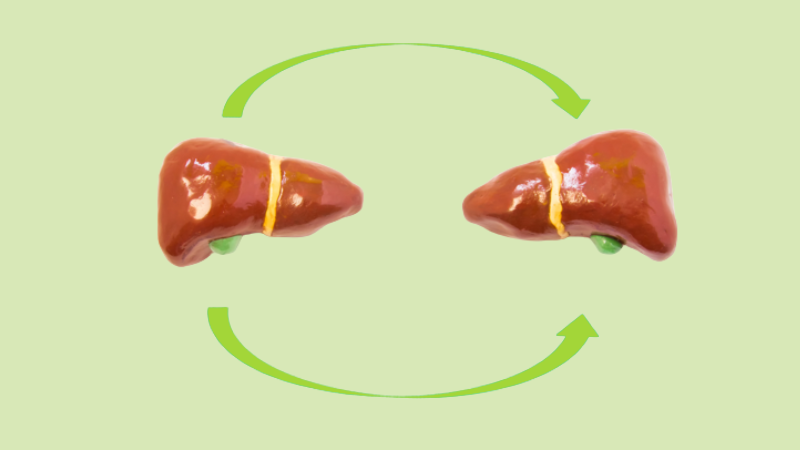
Understanding Autoimmune Liver Disease: Causes, Symptoms, and Treatment
Autoimmune liver disease is a group of disorders in which the immune system attacks the liver, leading to inflammation and damage. In this article, we will discuss the causes, symptoms, and treatment options for autoimmune liver disease.
What is Autoimmune Liver Disease?
Autoimmune liver disease is a group of conditions in which the body's immune system mistakenly attacks the liver. There are three main types of autoimmune liver disease:
I. Autoimmune Hepatitis (AIH)
Autoimmune hepatitis is a chronic inflammatory condition that causes the immune system to attack the liver cells, leading to inflammation and damage.
II. Primary Biliary Cholangitis (PBC)
Primary biliary cholangitis is a chronic disease that causes inflammation and damage to the bile ducts in the liver, leading to impaired bile flow and damage to liver cells.
III. Primary Sclerosing Cholangitis (PSC)
Primary sclerosing cholangitis is a chronic disease that causes inflammation and scarring of the bile ducts in the liver, leading to impaired bile flow and damage to liver cells.
Causes of Autoimmune Liver Disease
The exact cause of autoimmune liver disease is not fully understood. It is believed to be a combination of genetic and environmental factors that trigger an abnormal immune response against the liver.
Symptoms of Autoimmune Liver Disease
The symptoms of autoimmune liver disease can vary depending on the type and severity of the condition. Common symptoms of autoimmune liver disease include:
- Fatigue Fatigue is a common symptom of autoimmune liver disease, caused by the body's immune response to the liver.
- Abdominal Pain Abdominal pain is a common symptom of autoimmune liver disease, caused by inflammation and damage to the liver.
- Jaundice Jaundice is a yellowing of the skin and eyes, caused by the buildup of bilirubin in the blood due to impaired liver function.
- Itching Itching is a common symptom of autoimmune liver disease, caused by the buildup of bile salts in the skin.
- Other Symptoms Other symptoms of autoimmune liver disease can include nausea, vomiting, loss of appetite, weight loss, and joint pain.
Diagnosis of Autoimmune Liver Disease
Autoimmune liver disease is diagnosed through blood tests, imaging studies, and a liver biopsy. Blood tests can detect elevated liver enzymes and autoantibodies, which are antibodies that target the body's own tissues. Imaging studies, such as ultrasound or MRI, can help to assess the extent of liver damage. A liver biopsy involves removing a small sample of liver tissue for examination under a microscope.
Treatment of Autoimmune Liver Disease
The treatment of autoimmune liver disease depends on the type and severity of the condition. The goal of treatment is to reduce inflammation, prevent further liver damage, and improve liver function.
- Medications Medications such as corticosteroids and immunosuppressants can help to reduce inflammation and suppress the immune system.
- Ursodeoxycholic Acid (UDCA) UDCA is a medication that can help to improve bile flow and reduce liver damage in primary biliary cholangitis.
- Liver Transplant In severe cases of autoimmune liver disease, a liver transplant may be necessary to replace the damaged liver with a healthy one.
Conclusion
Autoimmune liver disease is a group of disorders in which the immune system attacks the liver, leading to inflammation and damage. While there is no cure for autoimmune liver disease, with proper treatment, people with the condition can manage their symptoms and lead normal, healthy lives. If you or a loved one are experiencing symptoms of autoimmune liver disease, it is important to seek medical attention and receive a proper diagnosis and treatment.
FAQs
Sure, here are some FAQs related to autoimmune liver disease:
1. Can autoimmune liver disease be cured?
There is no cure for autoimmune liver disease, but proper treatment can help manage the symptoms and prevent further liver damage.
2. How is autoimmune liver disease diagnosed?
Autoimmune liver disease is diagnosed through blood tests, imaging studies, and a liver biopsy.
3. Is autoimmune liver disease hereditary?
Autoimmune liver disease may have a genetic component, but it is not entirely hereditary.
4. Can autoimmune liver disease be prevented?
There is no surefire way to prevent autoimmune liver disease, but maintaining a healthy lifestyle and avoiding known triggers may help reduce the risk of developing the condition.
5. What is the outlook for people with autoimmune liver disease?
The outlook for people with autoimmune liver disease varies depending on the type and severity of the condition. With proper treatment, many people are able to manage their symptoms and live normal, healthy lives. In severe cases, a liver transplant may be necessary.


 WhatsApp
WhatsApp